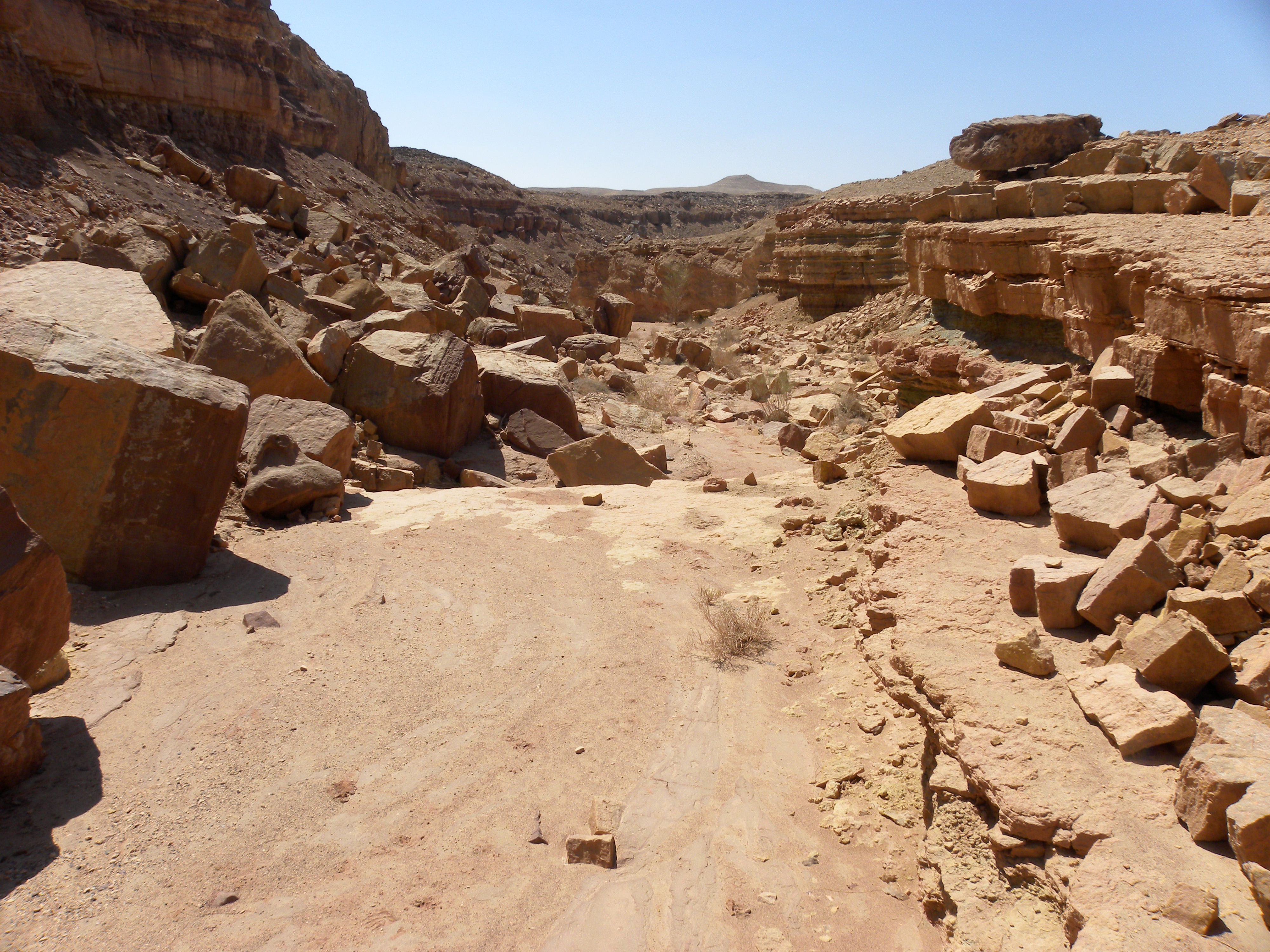Blog
When Words Become Gossip
Wednesday, October 16, 2019
When I returned to my store of sermon requests last week in preparation for this lesson, I saw that the next topic on the list was for a sermon on gossip. As they asked, I will keep the requester anonymous!
All of us must acknowledge, though, that whether or not we requested a sermon on gossip, we can benefit from a sermon on gossip. In fact, I think that gossip is one of the particular temptations to which disciples are exposed. After all, we are more interested in others than sinners are because Jesus calls us to be.
However, just like any other good thing, Satan can turn our interest in others into evil. The book of Proverbs is full of warnings about the dangers of whispering and gossip. At the same time, though, we know that not all discussions of others constitute gossip. For instance, when the elders meet to discuss the welfare of the flock, that’s the furthest thing in the world from gossip!
How, then, can we tell the difference? How can we know when neutral or even praiseworthy speech about others turns into ungodly speech? Let’s spend this morning, then, considering when words become gossip.
The first thing that causes words to become gossip is WHEN THEY ARE UNTRUE. For instance, consider the warning of Ephesians 4:31. Among the things that we are to put away is slander, which is telling or repeating a lie about someone, and malice, which is an insidious desire to hurt someone that often leads to slander.
Hopefully, it isn’t news to anybody here that it’s wrong to lie about somebody else in order to cause them harm in some way. However, I think it’s easier for all of us to end up on the wrong side of that line than we think.
What if somebody has done us wrong—really wrong!—and we’ve got all this rage and indignation built up inside of us? We’re talking to one of our good friends about how no-good and low-down this person is. We’re telling the story of all the horrible things they’ve done to us, and this. . . idea springs into our heads. We could tell our friend that this person has done this other horrible thing too! Well, no, it’s not true, exactly, but they’d have done it if they’d have thought of it! And so we slip it in to complete the narrative.
Brethren, I’m well aware that some of us are storytellers and some of us aren’t, but a good story is no excuse to slander somebody else. No matter how enjoyable that might feel in the moment, the price is more than we want to pay.
Second, words become gossip WHEN THEY ARE CARELESS. One of the most sobering warnings in Scripture appears in Matthew 12:36-37. Here, Jesus tells us that we endanger our souls not only when we lie, but when we speak idly and carelessly.
There are several ways in which speech can be careless. First of all, we can be careless with the truth. We heard this juicy tidbit about a brother, and it’s so good that we pass it on without much concern for whether it’s true or not. Maybe we make up the juicy tidbit ourselves and start spreading it around because we think it’s plausible.
Note, by the way, that carelessness with the truth is a serious problem when it comes to stories and memes on the Internet. When we hit “Share” on some piece of political clickbait without checking it out carefully, we are sinning according to the terms of Matthew 12:36. Wouldn’t it be the dumbest thing in the world if we ended up in hell because of the garbage we shared on Facebook?
Similarly, we can be careless about the consequences of our words. Just because something is true doesn’t mean it needs to be said. The truth carelessly spread can cause strife in friendships, in marriages, and in churches. We need to think about the strife-causing potential of our words, and if we see possible problems, we need to keep those lips zipped.
Third, words become gossip WHEN THEY PROCEED FROM EVIL SUSPICIONS. Once again, let’s look at a laundry-list verse to extract this idea, 1 Timothy 6:4. Contextually, Paul is talking about evil suspicions stirred up by doctrinal controversy, but whatever their origin, evil suspicions are problematic, and they lead to speech that is problematic.
We know that our hearts are in the grip of evil suspicions when we find ourselves imputing bad motives to others when it is not justified by the evidence. We especially have to be careful about this when we are talking about others whom we dislike.
There are times when it is necessary to talk about the bad behavior of others. I’ve watched elders all across the country do this. However, when we do, we have to be careful to make sure that there is a factual basis for every word that crosses our lips.
For instance, let’s say that Freddy is a Christian who has been struggling with his attendance. One Sunday, Freddy is absent. We notice, and we say to our friend, “I bet Freddy saw that it was a nice day outside and went fishing instead.” Let me point out that we don’t know that. If we had called Freddy, asked him where he was, and he said, “Fishing,” that would be one thing, but we didn’t. In the absence of evidence, we’re letting our evil suspicions do the talking, and that’s wrong. By contrast, the godly thing to do is to assume the best about others and their motives until we find out the truth.
Finally, words become gossip WHEN THEY DO NOT GIVE GRACE. Here, consider Ephesians 4:29. In this text, Paul is drawing a contrast between two kinds of talk: corrupting talk, which eats away at the hearts of those who hear it, and edifying talk, which builds up those who hear it. Edifying talk gives grace.
Some people say that whenever we are talking about a third party who isn’t present, that’s gossip. I don’t think that’s true, and this verse is one of the reasons why. It is totally possible for such a conversation to edify and give grace. If Bradley comes into my office, and we start talking about a brother with whom I ate lunch the other day, if I am motivated by love and by the desire to help Bradley do his job better, there’s not a thing in the world wrong with that. I’m bringing the church closer together. I’m giving grace.
On the other hand, let’s say that my motives are different. Let’s say that I think somebody is a bad guy, and I want to make sure that Bradley thinks he’s a bad guy too. I don’t want to help him. I want to make sure that Bradley and I are up here and he’s down there. Even if I am scrupulously careful to make sure that everything I say is true, that’s still gossip. I’m trying to corrupt my audience, not help him.
In this, brethren, we have to pay close attention to our hearts. I can imagine two Christians having a conversation about some brother who has fallen in sin, saying all the pious things about praying for him and helping him, yet each coming away with secret glee that they’re righteous and he isn’t. Even if we aren’t lying about somebody else, we have to make sure that we aren’t lying to ourselves about our motives too.
Summaries, Psalms 107-111
Monday, October 14, 2019
Psalm 107 is clearly a versified psalm (notice the repetition found in vs. 6, 13, 19, and 28), and it is about God’s deliverance of people in various kinds of trouble. It opens by calling all of God’s redeemed to praise Him. Then, it lists various kinds of redemption. God rescues those who are lost in the desert (4-9), imprisoned (10-16), sick (17-22), and caught in storms on the sea (23-32). The psalm concludes with a discussion of God’s ability to turn things upside down, whether the fertility of land (33-38) or the fortunes of humankind (39-43).
Psalm 108 is an expression of praise and a cry for help in battle. In it, the psalmist begins by declaring his determination to praise God and give thanks to Him. Such praise is due to God because of His steadfast love. The psalmist calls for God’s exaltation than asks for His help. He recalls God’s promise to defend the territory of Israel and give victory over Israel’s enemies. However, apparently the fortified cities of Edom have defied the armies of Israel, so the psalmist pleads with God for help, which he knows will be effective.
Psalm 109 is an imprecatory psalm aimed at one of David’s enemies. He asks God to speak up because his enemies are slanderously and treacherously accusing him. David then curses his enemy, beginning with personal harm, then extending to children and even parents, with the result that God will destroy even the memory of his family (Note, by the way, that vs. 8 is applied to Judas in Acts 1:20.). This is an appropriate punishment because the wicked man himself took such delight in cursing others, so he deserves to have those curses land on him instead.
By contrast, David asks for God’s blessing because he is poor and suffering. He contrasts the curses that his enemies have flung at him with the blessings that he knows the Lord will bring. He concludes by promising to praise God for His goodness.
Psalm 110 is a messianic psalm cited in many different places in the New Testament. In it, God invites David’s Lord to sit at His right hand and to have dominion over His enemies. He promises that the Lord’s people will follow Him and observes that He is a priest forever, according to the order of Melchizedek. The psalm concludes with the promise that God will help the Lord to have victory over His enemies.
Psalm 111 praises God for His good works. The psalmist begins by declaring that he will praise God. God is worthy of such praise because of the greatness of His good works. Especially, He provides for His people and gave them the land as an inheritance. He established His law, and He redeemed His people. The wise learn from these things to fear and praise Him.
Ellen DeGeneres and Kindness
Thursday, October 10, 2019
A few days ago, Ellen DeGeneres made headlines by sitting next to George W. Bush and daring to interact cordially with the man. Many expressed their shock that she would be civil to a conservative who did lots of conservative things while he was president. In response, DeGeneres opined that you’re supposed to be kind to everyone, regardless of what they have done.
As unremarkable as this might sound to Christians, apparently it too was controversial. Yesterday, this op-ed from Vanity Fair wandered across my news feed (side note: how many Vanity Fair readers these days are aware that the title comes from John Bunyan’s The Pilgrim’s Progress?). In it, the author takes DeGeneres to task for her never-never-land moralizing when presented with an enemy like Bush. Among his sins, the author numbers not only his intentional actions (starting the Iraq War) but also his unintentional errors (botching the response to Hurricane Katrina). One should, apparently, not socialize with those who make mistakes.
In this, I can’t help but see a twofold reminder of a) how badly we need Christ in order to be kind, and b) how bad things get without Him. Have self-professed Christians been ungracious and vengeful too? Of course they have! However, even atheists realize that this is not how things are supposed to go. The most religiously ignorant American out there is still aware that Jesus stands for the idea that you are supposed to be nice to people.
For those who are in the faith, the relationship between Christ and kindness is profound. Because of His grace, our lives are hidden in Him, and we have the hope of eternal life. His example teaches us to be gracious, and His blessings free us to be gracious. I can be kind even to my enemies without fear of being taken advantage of, because the damage they might do to me pales in comparison to the riches of His grace. Jesus makes His people invincible in doing good. No matter what happens, we still will overwhelmingly conquer through Him who loved us!
Take Christ away, and the invincibility drops out. If our lives aren’t hidden in Him, they can’t be hidden anywhere. Instead, we have to be eternally vigilant against threats to the things we value, and we must attack our enemies constantly to make sure they can’t harm us. Without the wealth of Christ’s forgiveness, we can’t afford to forgive others. In a dog-eat-dog world, the only imperative is to be the top dog.
It is only natural, then, for folks like the Vanity Fair writer to be vengeful, to be angry at DeGeneres for not scoring political points when she had the opportunity. Doesn’t she understand that this is ideological war to the knife??? You should only dole out kindness when you know it is safe and it will cost you nothing. Certainly, kindness should not be lavished on enemies!
To the worldly mind, all of the above makes sense and is logically consistent (and note, by the way, that I believe such worldliness is all too evident on the left and right alike. Donald Trump is not noted for his kindness to his enemies.). However, when a society embraces norms of ungraciousness and vindictiveness, the potential for disaster almost cannot be overstated. Civil wars don’t come from political disagreement. They come from the hearts of people who believe their enemies are hateful and worthless.
Christ stands for kindness because He stands for the intrinsic value of everyone. Apart from Him, I don’t know of any way to reach the conclusion that everyone matters. Without Him, we inevitably will behave as though no one does.
Psalm 63
Wednesday, October 09, 2019
My God, I seek You earnestly
And crave Your righteousness;
I thirst for You as in a land
Both dry and waterless.
Within Your courts, I see Your might
And know Your steadfast love,
So I will bless You all my life
And stretch my hands above.
Your name is sweetness to my soul;
I praise You with delight;
In bed, I still remember You
And meditate all night.
I celebrate Your help for me
Beneath Your shadowed wings;
Your strong right hand upholds my life;
To You my spirit clings.
All those who seek to take my life
To darkness will descend;
The sword will claim them by its power
And jackals be their end.
But I will still exult in God;
His people shall rejoice;
But He will stop the scoffer’s mouth
And still the liar’s voice.
Zion, the Mountain of God
Tuesday, October 08, 2019
I have to say, there are few better ways to vary up the content of your preaching than to solicit sermon suggestions from the congregation! Frankly, the suggestions I get show me how narrow my perspective is. Even if I never got another sermon request, I wouldn’t have any trouble coming up with two sermons a week indefinitely, but almost invariably, the requests that I do get are on subjects that I never would have thought to preach on.
This evening’s sermon is a case in point. Its inspiration came from Landon, who noted that in our hymns, we sing a great deal about Zion, but we don’t necessarily understand as much about Zion as we think we do when we’re singing. Once I started studying for the sermon, I realized, somewhat to my dismay, that Landon was right. I can’t speak for anybody else, but I sure didn’t know as much about Zion as I thought I did! In fact, there are some pretty important things that I learned that may well not be common knowledge. With this in mind, then, let’s consider Zion, the mountain of God.
Let’s begin by considering ITS OLD-TESTAMENT SIGNIFICANCE. Mt. Zion appears in the Bible for the first time in 2 Samuel 5:6-7. I have to say, this was an eye-opener for me. I had always associated Mt. Zion with the Temple Mount, but it isn’t. Instead, Mt. Zion is the eminence directly to the south of the Temple Mount. It’s the location of the Jebusite citadel that David conquered and made his capital. Mt. Zion held the oldest, earliest parts of the city of Jerusalem, which is why “Jerusalem” and “Zion” are used interchangeably in the Bible.
Here’s why this matters. It means that whenever we read or hear “Zion”, we should not think “temple”. We should not think “priest”. Instead, we should think “fortress”, and we should think “king”. It’s a whole different set of imagery than the temple-priest-sacrifice imagery of the Temple Mount.
Instead of all those things, Zion was significant in three main ways. First, it was the dwelling place of God. Look at Psalm 76:1-2. I find this surprising for a couple of reasons. First, once I figured out the actual location of Zion, I expected the Bible to make a big deal about the kings of Israel and Judah living there. That doesn’t happen. It’s mentioned a time or two, but the main inhabitant of Zion is the great King, God.
This is disorienting for another reason. Typically, when we think of God’s dwelling place in the Old Testament, we think specifically of the temple. However, the Scriptures point out over and over again that Zion is His dwelling. To put things another way, even though there was a sense in which God lived in the temple, apart from His people, He lived in their midst, in Zion, too. Even today, it should matter deeply to us that God dwells in our midst!
Second, Zion also features prominently as a place of safety. Here, look at Psalm 125:1-2. This makes perfect sense. In a purely physical sense, Zion was a mountain in the middle of a bunch of other mountains. It was hard for invading armies to get to. Additionally, it was heavily fortified. There’s even a psalm, Psalm 60, that’s about the Israelites asking for God’s help after the walls of Jerusalem were destroyed in an earthquake. When you are surrounded by homicidal neighbors, walls are important!
However, what made Zion truly secure was that it was God’s dwelling place. Notice that in Psalm 125, the true source of protection isn’t the mountains surrounding Jerusalem, but the Lord surrounding His people. This is still important to us today. The hymn-savvy among you will already have noticed that the words to our hymn “Surround Us, Lord”, come from v. 2. Even now, as the inhabitants of a spiritual Zion, we look to God for protection.
Finally, in an Old-Testament sense, Zion was the source of salvation. Consider Psalm 14:7. Once again, this is something that I can only connect back to Zion as God’s dwelling place. Because only God could save, salvation had to come out of Zion.
This theme continues even in the books of the prophets. Isaiah, for instance, talks about Zion a great deal, though his focus was on post-exilic Judah returning to Zion. When the exiles re-entered the city, that was when they could rejoice in God’s salvation.
Today, of course, this subject is even more meaningful to us. We don’t regard the dwelling place of God as the source of our salvation from earthly enemies or earthly captivity. Instead, we rejoice because our spiritual deliverance has come out of Zion!
Shifting forward in time, we see that Zion is also a concept with MESSIANIC SIGNIFICANCE. To capture this, I think we need to read the entirety of Matthew’s account of the Triumphal Entry, Matthew 21:1-11. Notice how prominently the prophecy of Zechariah 9 features in this text. Jesus rides into Jerusalem on a donkey in order to fulfill a prediction made hundreds of years before.
However, there’s more to the idea of the king entering Zion than merely that. As we have seen, yes, Zion was the dwelling place of the Davidic kings, but it was really the dwelling place of God. As a result, all the people who were hailing the return of the king to Zion weren’t just hailing the son of David, though they thought they were. They were hailing the Son of God. Only when the great King is in Zion can His people be restored.
Today, restoration is still THE MEANING OF ZION FOR US. Let’s wrap up our reading for the evening with Hebrews 12:18-24. There are plenty of people out there who insist that the physical Mt. Zion and the earthly Jerusalem still have spiritual significance. As this text makes clear, they could not be more wrong. Today, it is the spiritual Zion, the heavenly Jerusalem, to which we have come.
However, even though the location may have changed, its symbolic significance remains the same. Zion, partially in the church and fully in heaven, is still the place where God dwells with the assembly of His people. It is where we come into contact with the blood that purifies us instead of condemning us. Most of all, Zion is the place where we can be perfected through our covenant with Jesus. Zion has been meaningful to the people of God for 3000 years, and even after the earth is destroyed, its significance will continue.


